Directory of Innovation
H2HC identifies and elevates innovative models that systemically address food and nutrition challenges and advance health equity in communities across the U.S. H2HC is building this directory of innovation to highlight and share this important work.
To submit your organization’s work for possible inclusion in the directory, please complete the form at the bottom of this page.
For questions, please contact info@h2hcollaboratory.org.
Filter Results By:

4P Foods
Established in 2014, 4P Foods helps to advance Food Is Medicine efforts by providing nutritious, locally sourced foods from regional farmers to organizations and individuals across the mid-Atlantic region. The mission of 4P Foods is to build a new regional, regenerative, and equitable food system that mitigates climate change, maximizes farmers’ profits, and provides all people with dignified access to healthy food from farmers. 4P Foods is a positively disruptive market solution that prioritizes social good, recognizing that multiple societal factors and multifaceted collaborations intersect to create and sustain cyclical patterns of impact.
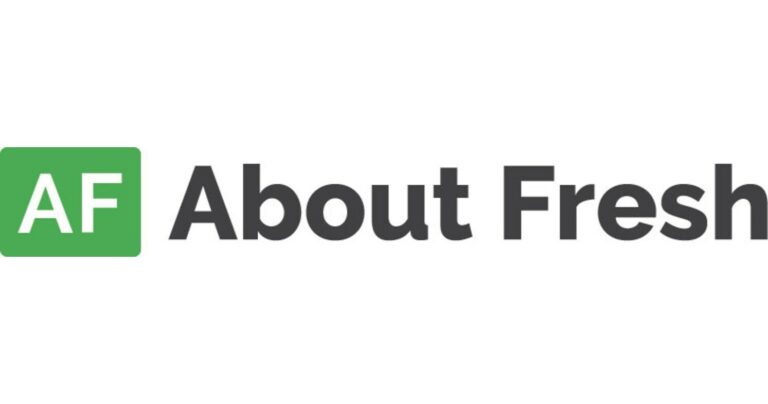
About Fresh
About Fresh is a Boston area nonprofit working to strengthen communities by getting healthy food to the households that need it most. Its programs are built to be integrated into community health systems and include: Fresh Truck, mobile markets bringing affordable, healthy food to Boston neighborhoods; and Fresh Connect, a pre-paid debit card and analytic platform that enables health care providers to cover the cost of healthy food for patients and measure related health impacts.
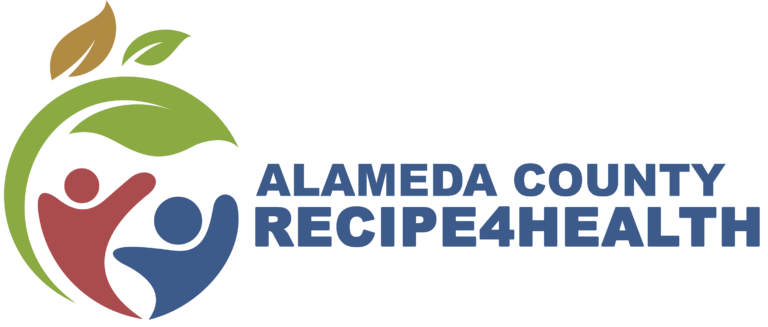
Alameda County Recipe4Health
Alameda County Health Recipe4Health is an innovative model that integrates food-based interventions into healthcare settings to treat, prevent and reverse chronic conditions; to address food and nutrition insecurity and other social determinants of health; and to improve health and racial equity. Through weekly produce prescription deliveries from BIPOC-led organic and regenerative farms and health coaching for patients, along with Food as Medicine training for healthcare staff, Alameda County Recipe4Health is creating sustained improvements in patient health and wellbeing.

Food & Society at The Aspen Institute
Food & Society at the Aspen Institute brings together public health leaders, policymakers, researchers, farmers, chefs, food makers, and entrepreneurs to find practical solutions to food system challenges and inequities. The goal is to help people of all income levels eat better and more healthful diets – and identify and nourish the leaders from all realms who will help them do that.
Food & Society initiatives include The Food Leaders Fellowship; Food is Medicine research; Food justice discussion series; and Open Access, the first open-source portal available at no cost to cities and other organizations to customize with links to financing, education, and support.

Center for Health Law and Policy Innovation (CHLPI) at Harvard Law School
The Center for Health Law and Policy Innovation of Harvard Law School (CHLPI) advocates for legal, regulatory, and policy reforms to improve the health of marginalized populations, with a focus on the needs of low-income people living with chronic illnesses and disabilities. CHLPI works with consumers, advocates, community-based organizations, health and social services professionals, food providers and producers, government officials, and others to expand access to high-quality health care and nutritious, affordable food; to reduce health disparities; to develop community advocacy capacity; and to promote more equitable and effective health care and food systems.
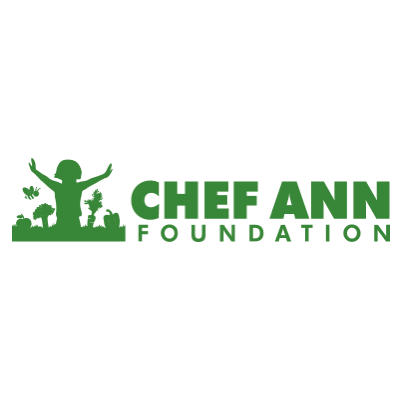
Chef Ann Foundation
The Chef Ann Foundation works to ensure that school food professionals have the resources, funding and support they need to provide fresh, healthy, delicious, cook from scratch meals that support the health of children and our planet. They do this by actively supporting school districts through professional development and implementation grants, including free resources and tools for change.
More than 31 million children eat school lunch every day and due to labor shortages school food has become increasingly more processed (heat-and-serve) and less healthy. Scratch cooking uses real food with real ingredients and has the potential to catalyze multiple benefits across the food system.
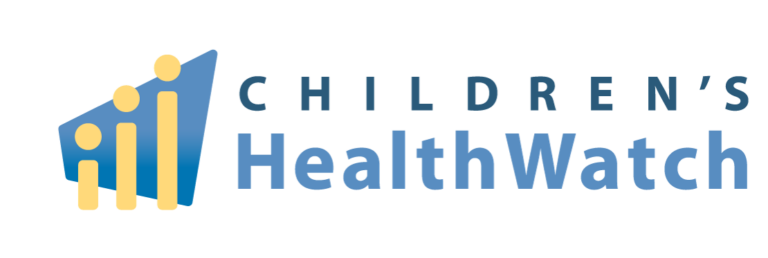
Children's HealthWatch
Children’s HealthWatch is a nonpartisan network of pediatricians, public health researchers, and children’s health and policy experts committed to improving children’s health in America.
Since 1998, Children’s HealthWatch has collected data in frontline healthcare settings to perform cutting edge research on the impact of public policy on the health, nutrition, and development of children ages zero to four. The multi-site network of pediatricians and public health professionals continuously monitor the influence of public policy changes on the health and well-being of low-income babies and toddlers in the United States.
Children's HealthWatch is the only frontline organization that collects and analyzes data on an ongoing basis exclusively about very young children who are from families facing economic hardship.
To ensure a complete picture of each child surveyed, the information collected from caregivers includes more than just physical health. They also look at numerous factors that impact health, such as access to food and affordable housing.
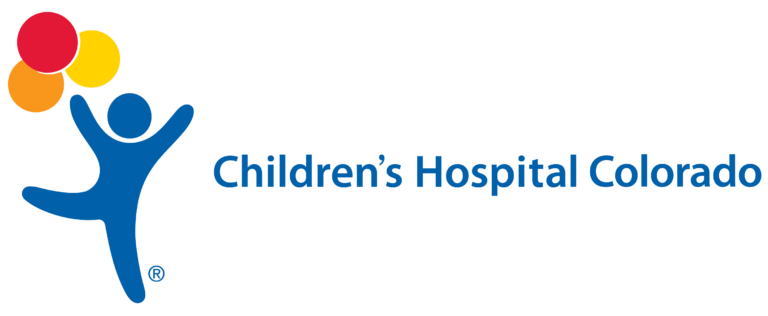
Resource Connect at Children's Hospital Colorado
Resource Connect at Children’s Hospital Colorado is one of the few pediatric programs of its kind in the country to robustly address social drivers of health (SDOH) by connecting families in a clinical healthcare setting to the social services they need in an integrated cross-system support model. Primary care patients who screen positive for any social needs are paired with a community health navigator, who guides them to an onsite suite of CBO offices, which include services for nutrition and food access, public benefits, housing, education, workforce training, and legal services.
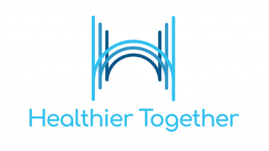
Healthier Together at Children's Hospital of Philadelphia (CHOP)
Children's Hospital of Philadelphia (CHOP) created Healthier Together to address the broader, nonmedical factors that are often linked to health disparities. Healthier Together’s mission is to improve child health by tackling the social drivers of health and fostering partnerships in West and Southwest Philadelphia where children live, learn, play and heal. Healthier Together Child and Adult Care Food Program (CACFP) Partnership is a new coalition of diverse disciplines including healthcare, a community development financial institution, small business, and federal and state governments. This collaboration directly addresses and rectifies the barriers limiting uptake in CACFP. Outcomes of the program are decreased food insecurity, improved child health, increased parent satisfaction, and more prosperous local businesses.
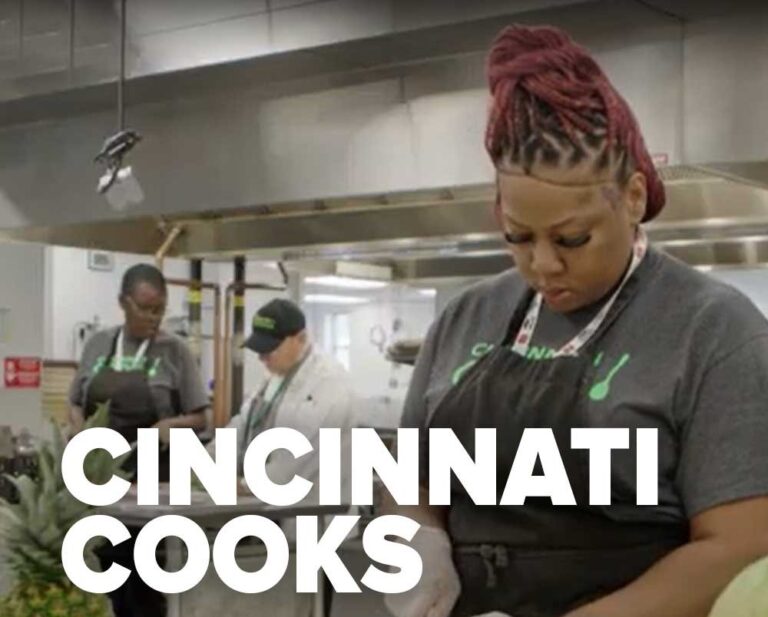
Cincinnati COOKS!
Cincinnati COOKS!, created by Freestore Foodbank in Cincinnati, OH, addresses food and nutrition challenges by preparing nutritious meals for children, prepared meals for food pantries and community partners, and offering culinary training to combat unemployment. The program provides around 2,000 balanced meals weekly for children in after-school Kids Cafe programs, adhering to federal nutrition guidelines. It tackles systemic factors by offering free culinary training, leading to stable employment opportunities, thereby enhancing participants’ economic stability and ability to afford nutritious food. Holistic support services, including transportation and rent and utility assistance, help participants overcome barriers. Since the program began in 2001, over 1,500 people have graduated. Those students have gone on to find employment at more than 200 local culinary institutions.

Community Care Cooperative (C3)
Community Care Cooperative (C3) is a non-profit Accountable Care Organization (ACO) governed by Federally Qualified Health Centers (FQHCs) in Massachusetts. In 2016, leaders from 15 FQHCs throughout the state formed C3, the first organization of its kind. C3 leverages proven best practices and is the only ACO in the state founded and governed by FQHCs exclusively focused on advancing integrated and coordinated community-based care for MassHealth (Medicaid) members. With 17 current partner health centers and continued growth, C3's strategy is to unite FQHCs at scale to strengthen primary care, improve financial performance, and advance racial justice.

Community Servings
Community Servings is a leader in providing nutritious, scratch-made meals to chronically and critically ill individuals and their families. Since their founding in 1990, they have provided more than 13 million medically-tailored meals (MTMs) to clients across Massachusetts who are living with severe critical and chronic illnesses such as HIV, cancer, diabetes, and kidney disease. In addition to providing MTMs and nutrition counseling for clients, Community Servings also runs a successful culinary job training program for individuals facing high barriers to employment. In all of their programmatic work, Community Servings prioritize racial and economic justice and health equity.
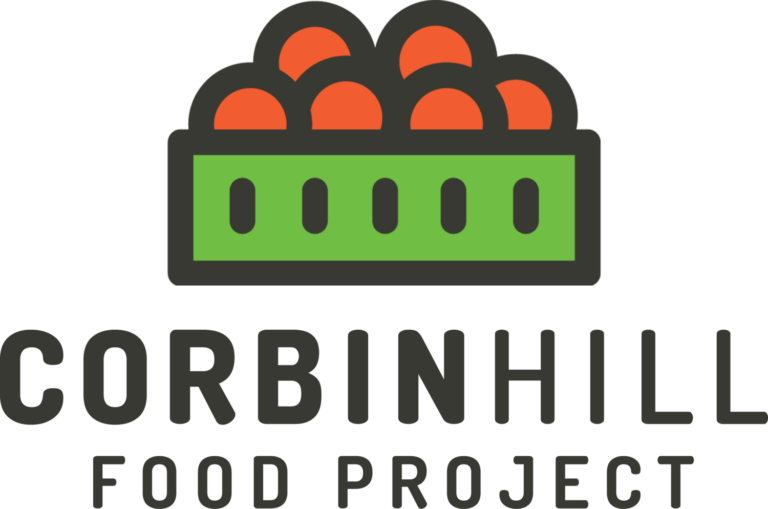
Corbin Hill Food Project
Corbin Hill Food Project (CH) is a Harlem-based nonprofit working at the intersection of food access, justice, and sovereignty. For over a decade, CH’s mission has been connecting BIPOC growers upstate to communities in New York City. Their community-driven initiatives increase access to affordable, fresh produce while leveraging purchasing power to create economic opportunities for BIPOC growers and producers. Their work focuses on research, advocacy, community engagement, nutrition education, and food distribution.
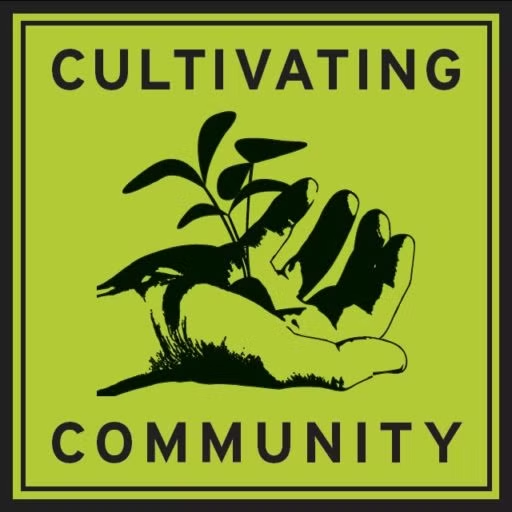
Cultivating Community
Cultivating Community is a nonprofit organization based in Portland, Maine, dedicated to promoting food justice by providing education, resources, and opportunities for individuals to grow and share culturally familiar food. Established in 2001 by Craig Lapine, the organization focuses on supporting those most susceptible to hunger and limited access to fresh food and land, including children, immigrants, people of color, older adults, and individuals with limited resources.

DC Central Kitchen
DC Central Kitchen (DCCK) is a nonprofit and social enterprise that combats hunger and poverty through job training and job creation. Founded in 1989 as the nation’s first ‘community kitchen,’ the organization provides hands-on culinary job training for individuals facing high barriers to employment while creating living wage jobs and bringing nutritious, dignified food to the community. DCCK’s social ventures include serving scratch-cooked farm-to-school meals in DC schools, delivering fresh, affordable produce to corner stores in neighborhoods without supermarkets, and operating fast-casual cafes throughout the District of Columbia.

DC Greens
DC Greens advances health equity by building a just and resilient food system. Founded in 2009, they are a multiracial organization that focuses on creating cross-sector collaborations, advancing equitable, city-wide policy solutions, and working in solidarity with marginalized communities experiencing poverty and food insecurity. Their work includes community engagement, policy/advocacy, and running a successful produce prescription program and one-acre educational farm, all with the goal of transformational changes at the systems level.
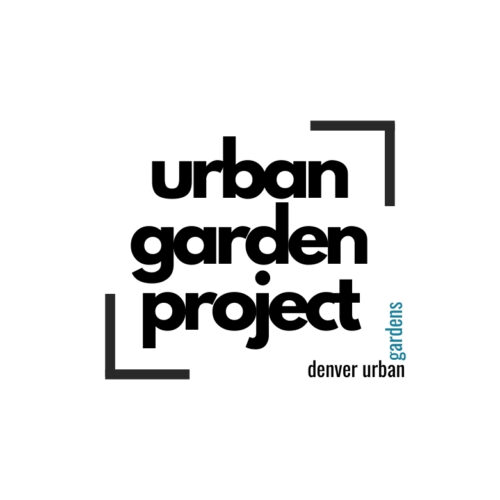
The Urban Garden Project at Denver Urban Gardens (DUG)
In 2023, Denver Urban Gardens (DUG) launched the Urban Garden Project. The Urban Garden Project is an initiative to unite, uplift, and amplify the community garden movement across the US and the world.
Community gardens are uniquely high ROI (return on investment) interventions and should be embraced by city builders as critical infrastructure for thriving cities. They cultivate food, community and climate resilience on a human scale that helps solve for some of the toughest problems facing our cities today.
DUG believes that everyone deserves access to fresh, healthy food, vibrant communities, and a sustainable future.

Eat Real
Eat Real is a nonprofit organization committed to improving children’s health and well-being by advocating for the consumption of nutritious, whole foods in schools, homes, and through public policy. Recognizing the critical role of school cafeterias, which collectively serve seven billion meals annually—more than all fast-food chains combined—Eat Real aims to transform menus that are often dominated by ultra-processed and sugary foods.
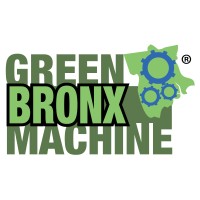
Green Bronx Machine
Green Bronx Machine if a nonprofit organization that builds healthy, equitable, and resilient communities through inspired education, local food systems, and workforce development.
Dedicated to cultivating minds and harvesting hope, the school-based model using urban agriculture aligned to key school performance indicators grows healthy students and healthy schools to transform communities that are fragmented and marginalized into neighborhoods that are inclusive and thriving.
Green Bronx Machine was born via collaboration between life-long educator Stephen Ritz and his students who observed that as waistlines expanded, engagement and opportunities in school decreased, school performance suffered, and hope and ambition became minimized. Originally an after-school, alternative program for high school students, Green Bronx Machine has evolved into K-12+ model fully integrated into core curriculum.
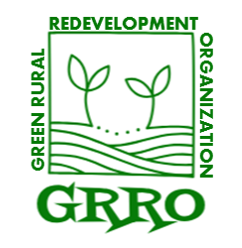
Green Rural Redevelopment Organization (GRRO)
Green Rural Redevelopment Organization (GRRO) is a nonprofit founded in 2012 with a vision to revitalize Henderson and Vance County, North Carolina. GRRO addresses three critical areas effecting rural communities in North Carolina: poverty, food insecurity, and chronic diseases. GRRO creates programs and projects that positively impact their community by providing: 1) avenues of economic development in the face of persistent poverty; 2) access to fresh, healthy foods for vulnerable members of the community; and 3) support health providers to reduce chronic diseases through access to better, fresh foods. GRRO programs include a mobile food pantry, farm school, rural programmtic consulting, and mobile medical clinics.

Health Equity Accelerator
The Health Equity Accelerator at Boston Medical Center is working to transform healthcare to eliminate gaps in life expectancy and quality of life among different races and ethnicities. The Accelerator is built to transform healthcare to deliver health justice and wellbeing by creating an infrastructure that brings together three tools that normally operate independently: leading-edge research methodologies, patient insights and community partnerships, and clinical operations capabilities.
These three functions will work together to systematically uncover and address the root causes of inequity, including barriers to economic mobility, systemic bias, and racism.
They have started by working in five clinical areas where major disparities are seen: Pregnancy, Cancer, Infectious Diseases, Chronic Conditions, Behavioral Health.
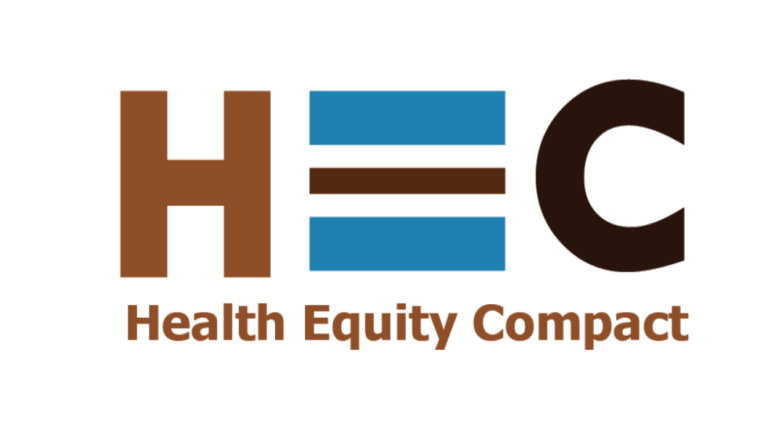
Health Equity Compact
The Health Equity Compact is a group of over 80 leaders of color who aim to advance health equity together in Massachusetts. Their mission is to drive urgent, transformational statewide policy and institutional changes that advance racial justice and health equity. They advocate for state policy change in six priority areas: Governance; Measurement and Accountability; Workforce; Healthcare Delivery and Payment Reform; Coverage and Access; and Social Determinants of Health. Compact members are high-level executives and experts from a diverse set of health, business, labor, and philanthropic organizations, including hospitals, health centers, payers, academic institutions, and public health. They leverage lived experience and leadership to propel Massachusetts towards health equity.

HEBNI Nutrition Consultants
Hebni is a community-based nonprofit that provides nutrition programs and services that empower and educate underserved and minority communities to eat better and thus prevent diet-related chronic diseases via print (Soul Food Pyramid, 6 healthy soul food cookbooks); brick and mortar (Nutrition Resource Center; Wellness Center); nutrition/exercise programs and cooking classes in Spanish and English for youth, families, seniors and corporations; healthy food make-overs for local inner-city grocery stores; Fresh Stop Mobile Market selling fresh fruits and vegetables at low prices in food desert neighborhoods; healthy catering; meal planning and customized healthy meal kits; culturally relevant recipes; affordable rates for one-on-one consultations with dietitians; speakers bureau; precepting/mentoring students/interns and a new dietetic internship.
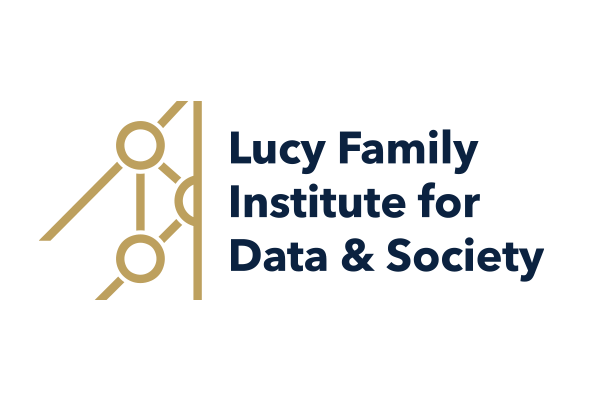
Health Equity Data Lab at the Lucy Family Institute for Data & Society, University of Notre Dame
The Health Equity Data Lab (HEDL), established under the Lucy Family Institute for Data & Society at the University of Notre Dame and generously supported by a gift from Accenture, collaborates with interdisciplinary researchers from academia and community partners to identify and address health inequities.
The primary goal of the Lab is to advance interdisciplinary research and translation in the fields of health equity, data science, and AI, identified through collaborative efforts. Additionally, the lab aims to develop a comprehensive framework for co-creation and co-innovation. This framework will address challenges related to health equity, especially at the intersection of medical and social care.
HEDL the power of data in uncovering dominant narrative patterns and identifying gaps. It will take a data-driven, interdisciplinary approach to identify opportunities that will guide the prioritization of resource allocation. This approach will support the Lab’s broader mission of promoting health and wellbeing in the communities.
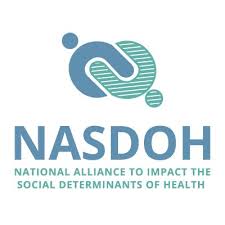
National Alliance to Impact the Social Determinents of Health (NASDOH)
NASDOH is a multi-sector coalition of stakeholders working to advance widespread adoption of effective policies and programs to address health-related social needs as well as the underlying social and economic conditions in which people live. NASDOH was founded in 2018 by Governor Mike Leavitt and Dr. Karen DeSalvo to address these issues as a pivotal element in the transformation toward value-based care.
NASDOH’s work focuses on improving regulatory and reimbursement frameworks, supporting funding opportunities, and addressing practical challenges to implementing and sustaining public and private sector efforts to address SDOH as a core component of advancing health equity.
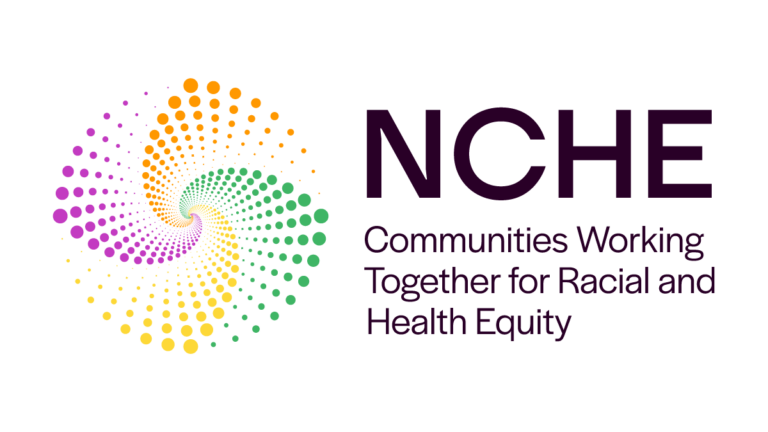
National Collaborative for Health Equity
The mission of the National Collaborative for Health Equity is to promote racial and health equity by supporting community leaders, harnessing data, and catalyzing partnerships across the many different sectors that share responsibility for creating a more equitable and just society.
NCHE provides an extensive body of data and resources to equip leaders from historically marginalized and excluded communities to improve the conditions that shape health. These tools include leadership development, policy analysis, data mining and analysis, and community organizing and mobilization to address a range of issues that are the ultimate determinants of health. We are committed to addressing the deep racial and ethnic health inequities that persist largely due to structural and institutional racism and exclusion.
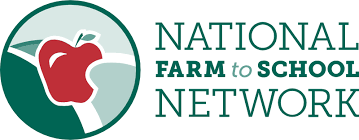
National Farm to School Network
National Farm to School Network (NFSN), a project of Tides, increases access to local food and nutrition education to improve children’s health, strengthen family farms, and cultivate vibrant communities. NFSN envisions a nation in which farm to school programs are an essential component of strong and just local and regional food systems, ensuring the health of all school children, farms, environment, economy and communities. In Fall 2020, National Farm to School Network released a new Call to Action: "100% of communities will hold power in a racially just food system." This Call to Action is guiding all NFSN work, from policy advocacy to resource design to partnership cultivation.
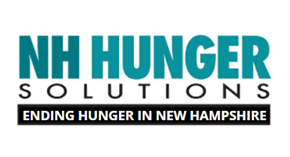
New Hampshire Hunger Solutions
New Hampshire Hunger Solutions (NHHS) is a statewide non-profit organization working to end food insecurity, improve equitable access to nutritious food, and address hunger’s root causes for all New Hampshire residents. NHHS focuses on four priority areas: 1) Engage in policy advocacy to close the gap between those eligible for and those enrolled in federal nutrition programs; 2) Work with schools and communities to increase participation in school meals; 3) Increase public awareness of the causes of and solutions to hunger in New Hampshire; and 4) Engage in coalition building among existing and emerging food access councils and coalitions.
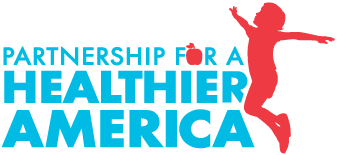
Partnership for a Healthier America
Partnership for a Healthier America (PHA) was created in 2010 in conjunction with Former First Lady Michelle Obama’s Let’s Move! effort. A nonpartisan nonprofit organization led by some of the nation’s most respected health and childhood obesity experts, PHA brings together public, private, and nonprofit leaders to broker meaningful commitments and develop strategies to end childhood obesity. Their mission is to leverage the power of the private sector to transform the food landscape in pursuit of health equity. They work with unbiased third parties to monitor and publicly report on the progress their partners are making.

Patrick M. Magoon Institute for Healthy Communities
Patrick M. Magoon Institute for Healthy Communities serves as the hub for community-based initiatives at Lurie Children's Hospital in Chicago, with a focus on improving social drivers of health. The Magoon Institute leads an innovative cross-hospital Pantry Partnership Model, in which Chicago-based hospitals each support at least one food pantry with the goals of building capacity, increasing fresh food availability, and expanding access to wraparound social services. The Magoon Institute also collaborates with community organizations to convene its Healthy Food Access Strategy Group, which implements upstream strategies to address health disparities, including screening and referrals for food insecurity, bolstering community efforts to strengthen food systems, advocating for supportive nutrition policy, and driving program implementation.

Plentiful
Plentiful is an app created created by the NYC Food Assistance Collaborative to improve dignity and efficiency at food pantries.
Plentiful aims to make it easy to get what you need when access to food is limited or uncertain. The technology platforms cut pantry wait times with reservation systems, connect people to food providers nearby, and help people get the kinds of food they need and want.
Since 2016, Plentiful has provided a reservation system for 576 pantries across New York City boroughs connecting more than 1.2 million unique users to available food by facilitating over 7 million visits across New York City. Plentiful is now expanding to pantries in Colorado, California, and Texas and beyond.

Reinvestment Partners
Reinvestment Partners is a nonprofit organization addressing poverty and social injustice in the areas of food, housing, community development, health, and financial services.
Reinvestment Partner's nutrition security program, Eat Well Rx (eatwellrx.org), is a clinically integrated produce prescription program, contracted with managed care organizations (MCOs), in which patients with diet-related diseases receive a preloaded debit card with a monthly allotment to spend in fruits and vegetables.
Other programs and services offered by Reinvestment Partners include: community development, HUD-certified housing counseling, healthy homes and lead safety services, taxpayer assistance, and research and advocacy.

Share Our Strength
Established in 1984, Share Our Strength is a national nonprofit working to end childhood hunger in America by ensuring all children get the healthy food they need by connecting kids in need with nutritious food, teaching their families how to cook healthy, affordable meals, and through the No Kid Hungry Campaign, surrounding children in this nation with healthy food where they live, learn and play. Share Our Strength initiatives also include the Mayors Alliance to End Childhood Hunger, the Family Economic Mobility program, Cooking Matters food skills education program, as well as disaster relief work.

South LA Community Foundation
South LA Community Foundation (SLAC) is a nonprofit organization dedicated to fighting racial, economic, social, and food inequity by investing in local people, community, and elevating the economic prosperity of the region through civic outreach and education. SLAC aims to break the shackles of systemic oppression and inequality by creating, building, and empowering an equitable, healthy, and sustainable South Central LA for all people. They offer food distribution programs, economic empowerment and workforce development programs, health and nutrition clinics, resilience and climate education activities, and community navigation services.
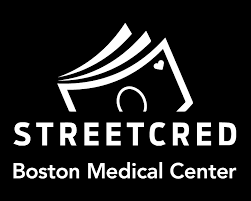
StreetCred
StreetCred, based at Boston Medical Center (BMC), was launched in 2016 to help families build nutrition security through enhanced economic security. Pediatric care, which includes seven well-child visits in a baby’s first year, is the single largest catchment area within medical care, reaching 90% of children nationwide every year. Redesigning pediatric care to include support for a family’s economic well-being has significant potential to break down barriers and improve health equity.
StreetCred offers families comprehensive financial coaching, helps them access proven asset-building services like Supplemental Nutrition Assistance Program (SNAP) and Special Supplemental Nutrition Program for Women, Infants, and Children (WIC) benefits, and provides free assistance with tax preparation and paid family leave applications. Data show that although these economic tools are associated with better health for both parents and children, they are complicated to navigate and chronically underused. To overcome this burden, StreetCred financial navigators meet with families throughout a baby’s first year of life with the opportunity to continue services as the child grows.
StreetCred founded the national Health by Wealth Collective to support health systems working to integrate similar services into medical settings. The Health by Wealth Collective has grown to 36 member organizations across 13 states and since 2016 have returned more than $16.8 million to 7,700 families.
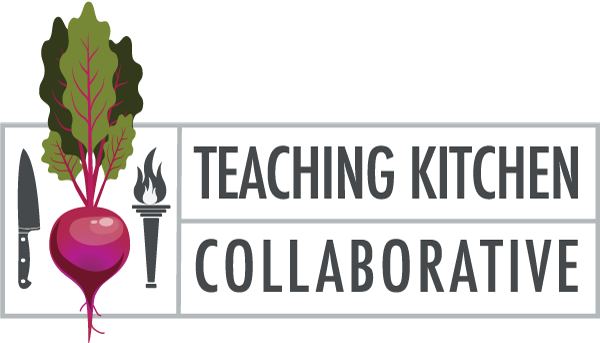
Teaching Kitchen Collaborative (TKC)
Teaching Kitchen Collaborative (TKC) is a network for thought-leading organizations using teaching kitchen facilities as catalysts of enhanced personal and public health across medical, community, school, and corporate settings.
Recognizing the need to bring together early advocates for teaching kitchens as a public health intervention, leaders at Harvard T.H. Chan School of Public Health and the Culinary Institute of America formed the TKC in 2016.
In 2020, the TKC became an independent 501c3 and today, it is a robust and growing network of Organization and Professional Members committed to sharing best practices and to generating and disseminating the evidence base and associated tools needed to fuel the growth of teaching kitchens in the US and around the world.

Teens for Food Justice
Teens for Food Justice (TFFJ) is building a food-secure future by addressing gaps in food access, nutrition, education, health, and opportunity equity through school based, youth-led hydroponic farming. TFFJ provides locally-grown produce to food desert communities, empowering students to operate these farms under the guidance of an on-site Farmer-Educator. By addressing upstream root causes of inequity, such as limited access to nutritious food, education gaps, and economic disparities, TFFJ programming boosts student and local community health outcomes. Evaluations show that the program enhances access to healthy foods, improves nutrition literacy, and develops students’ advocacy and leadership skills. TFFJ integrates nutrition education into school curricula, fosters community partnerships and promotes local agriculture to boost food security, building long-term community resilience and health equity.
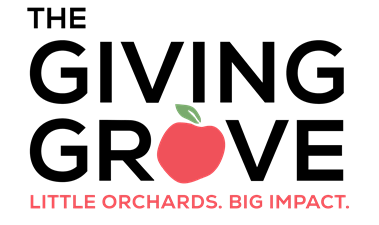
The Giving Grove
Established in 2013, The Giving Grove is a national network that supports community-based partners in planting and caring for fruit trees, nut trees, and berry brambles that: improve urban environments, increase the tree canopy, and provide sustainable sources of free, organically grown food in neighborhoods facing high rates of food insecurity.
The Giving Grove partners with existing community gardens, urban agriculture programs, and tree canopy organizations in an aligned network of orcharding programs that enables The Giving Grove to leverage partners’ existing networks, expertise, equipment, and local funding.
The Giving Grove network now has more than 620 orchards across the U.S. growing more than 4 million servings of free, fresh food annually with the lifetime potential to grow more than 88 million servings while re-invigorating urban green spaces from coast to coast. The Giving Grove is working to create a 20-city network by 2026 to support highly populated urban neighborhoods facing food insecurity. This network will impact 15% of all food-insecure Americans and create sustainable, local food systems that provide free produce to neighborhoods with historically limited access to fresh foods.

Vital CxNs
Vital CxNs is non-profit working on a hyper-local scale in Boston to strengthen communities by forging new partnerships and co-creating sustainable solutions for a more accessible, empowering, and equitable health ecosystem. Vital CxNs takes a grassroots approach to improving Boston’s community health ecosystem through tackling the city’s persistent and pervasive health inequities. Among their initiatives is The Neighborhood Food Action Collaborative (NFAC), a community-centered, cross-sector network made up of community residents, community-based organizations, and local healthcare and government institutions. Through collaboration, education, advocacy, and innovative programming, the mission of NFAC is to create solutions for a more robust, accessible, and equitable food ecosystem in Boston.

Wello - Cultivating Community
Wello is a nonprofit organization based in Green Bay, WI, with the mission of co-creating upstream community-based solutions to advance health equity. Wello's Cultivating Community (CC) Healthy Food Access Program is a flexible, relationship-based initiative that supplements current centralized food insecurity channels with a nimble network of relationships that moves fresh local food to food insecure individuals through trusted, culturally-specific community channels including local resource centers serving BIPOC and immigrant clients. The model has been recognized at the state level as an effective, scalable strategy for increasing equity, dignity and health-affirming practices in hunger relief efforts. The model also prioritizes small, local farms in meeting the food needs of their community and supports environmental sustainability by reducing food miles.
